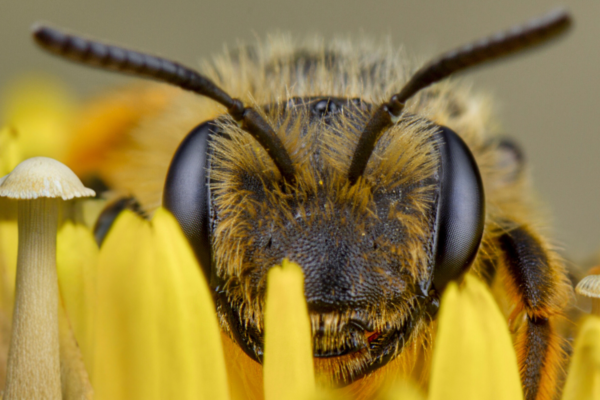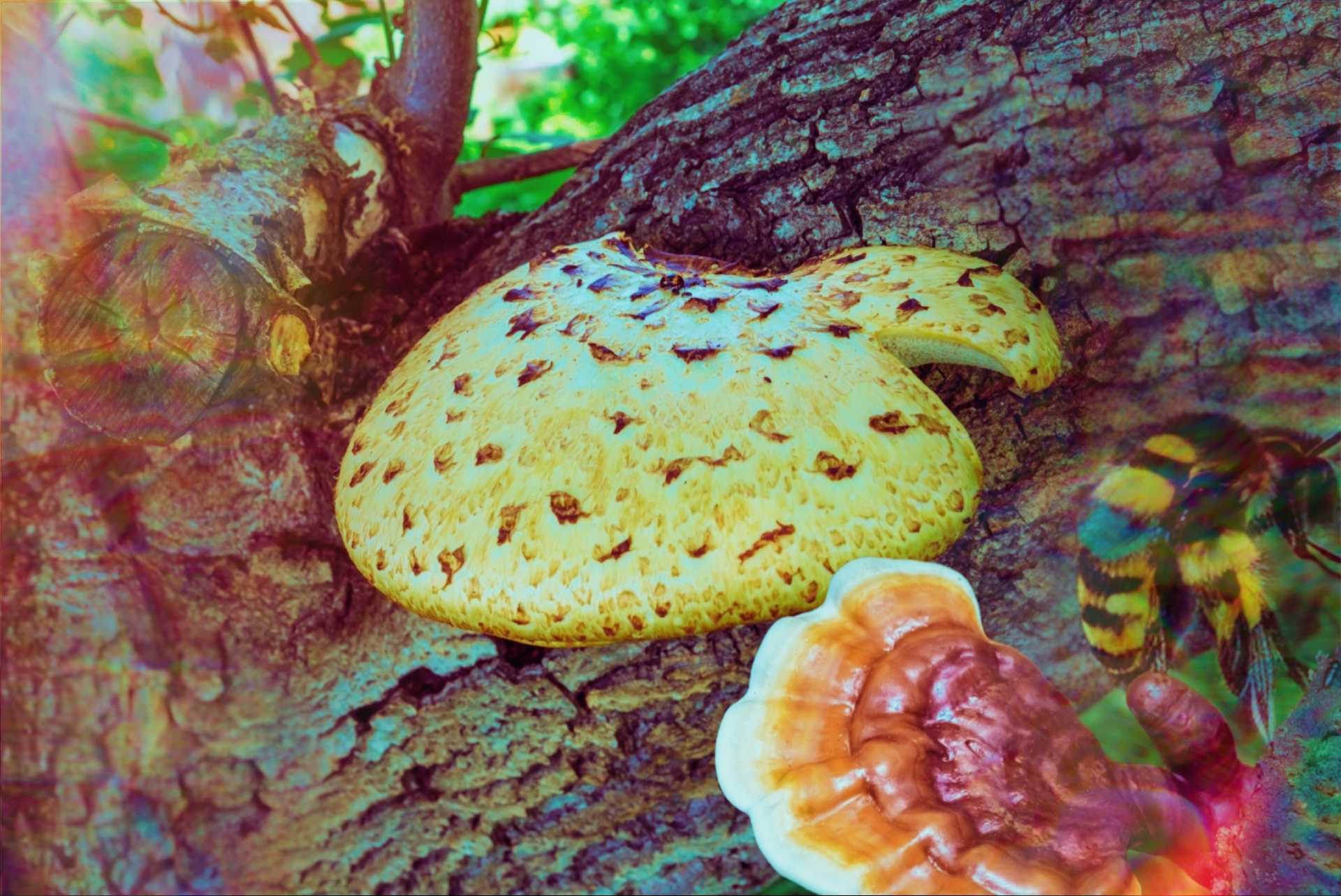
Buzz, buzz, buzz! Do you hear that? It’s the sweet sound of bees hard at work. Without these fuzzy little creatures, our world would be missing out on delicious fruits and veggies like apples, cucumbers, and avocados. Unfortunately, bees have been in decline due to habitat loss, pesticide use, and diseases. But fear not, fellow beekeepers! Polypore mushrooms like reishi and amagou mushrooms may be a natural solution to save these buzzing pollinators.
The Bee Extinction Problem
Honeybees play a crucial role as pollinators for agriculture. A significant amount of crops depend on cross pollination to grow successfully. The United Nations’ FAO states that 75% of the world’s food crops rely on pollination to some extent. This translates to roughly $577 billion US dollars worth of food production annually, in case financial gain is of interest. Despite their economic significance, bees are not duly credited for their contribution to society. However, as bees face the danger of extinction and food prices rise, people will likely start to recognize and appreciate their role more.
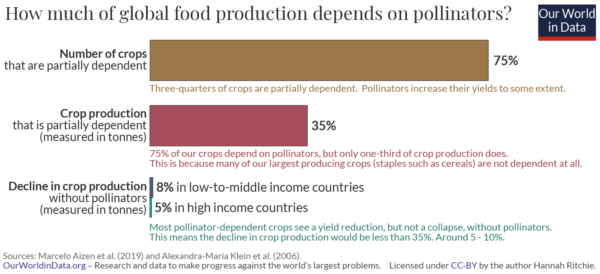
According to the 15th annual survey conducted by the Bee Informed Partnership (BIP), beekeepers in the United States experienced a 45.5% loss of their managed honey bee colonies from April 2020 to April 2021. That is not an insignificant loss, right? Each hive is worth approximately $200 currently. These large loss rates mean beekeepers must quickly and expensively rebuild their colonies. This puts commercial beekeeping at risk and endangers crops that rely on honey bee pollination. The rising cost of commercial pollination is an example of this threat, with the cost of renting honey bee hives for almond pollination increasing from $50 in 2003 to $200-$220 per hive in 2021.
As a result, beekeepers and scientists are collaborating to determine the root cause of this decline and they may have just discovered one of the main contributors…
The Varroa Mite’s Influence on Bees’ Immunity System
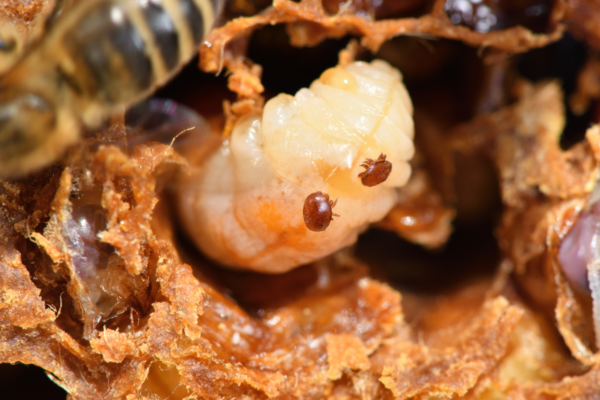
Beekeepers face a significant problem with the varroa mite, which feeds on bees’ blood and larvae and spreads viruses. The deformed wing virus is primarily caused by this parasite. The mite, known as Varroa destructor, is only 2 millimeters in size and has eight legs. It invades honeybee hives globally, attaching itself to the bees and feeding on their bodies. This activity spreads a destructive RNA virus. The die-off of colonies, known as colony collapse disorder, is a significant consequence of this issue.
Unfortunately, these mites have the ability to develop resistance to chemical treatments that were previously used by beekeepers, causing a problem in the industry. It is only a matter of time before the mites become resistant to the compounds used and a good amount of bee colonies are not likely to survive because many of the larvae have died and will not develop into adult bees.
According to some scientists, varroa mites harm bees significantly by transmitting and increasing the impact of viruses. The mites exert considerable pressure on the immune systems of bees and make them more vulnerable to viruses that can shorten the lifespan of worker bees.
Developing sustainable methods to control varroa mites, without relying on chemicals, is crucial for beekeepers to break free from a dependency on pesticides.
Luckily, Paul Stamets and his team of fungi experts are here to save our buzzing friends.
Amadou and Reshi Fungi to the Rescue
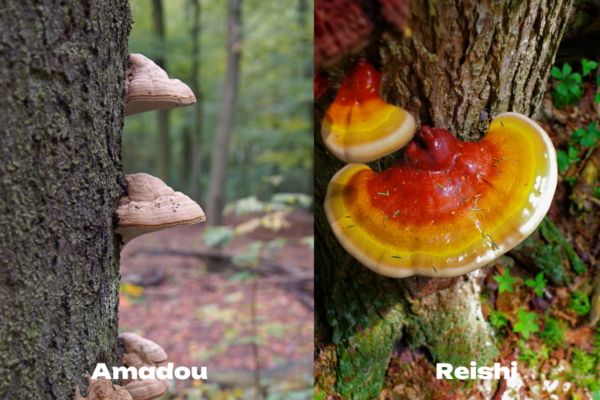
In a world where the fate of our food security rests on the fragile wings of bees, the A team of researchers decided to turn to a surprising collaborator: mushrooms. In 2014, Paul Stamets, Dr. Steve Sheppard, and the Washington State Beekeepers Association launched BeeFriendly™, an initiative aimed at reversing the devastating decline of the global bee population.
Fast forward to 2015, when experiments began with honey bees drinking extracts of mushroom mycelium. And the results? A glimmer of hope. Research is pointing towards these tiny fungal organisms providing essential nutrition and an immune boost for bees. Who knew that mushrooms could hold the key to saving the bees? The answer might just be as mind-blowing as it is delicious.
Bees are facing a lack of nutrition sources due to the rise of mono-cultured landscapes and loss of biodiversity. Mycelium extracts could potentially provide a valuable means of support for bees as they face tougher conditions in our ecosystems.
A peer-reviewed research paper titled “Extracts of Polypore Mushroom Mycelia Reduce Viruses in Honey Bees” was published in the journal Nature: Scientific Reports in 2019. The paper discusses the documented benefits of using extracts from amadou and reishi fungi to reduce the levels of deformed wing virus and Lake Sinai virus in honey bees.
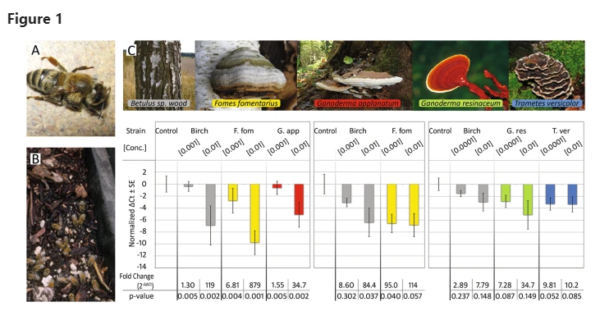
The gist of it is that Paul Stamets, the founder of Fungi Perfecti, noticed bees gathering on mushroom mycelium in the wild, which led him to believe that they might be getting nutritional or medicinal benefits from the fungi. He then researched extracts taken from the mycelium of many polypore fungal species that are known to have antiviral properties.
The mycelial species/strains collected and cultured by Stamets were:
The researchers noted that the mushroom extracts have the ability to extend the lifespan of bees. According to the study results, colonies that were given Ganoderma resinaceum extracts from amadou (Fomes) and reishi (Ganoderma) fungi had significantly fewer instances of deformed wing virus (DWF) and Lake Sinai virus (LSV). Specifically, they observed a 79-fold decrease in DWF and a 45,000-fold decrease in LSV compared to the control colonies. These results suggest that fungi and their antimicrobial compounds could be beneficial for the health of honey bees.
In a world where the bee population has been rapidly declining, what the 2019 study has shown us it that extracts of several polypore mushrooms can effectively reduce RNA virus titers in honey bees in vivo. This is especially significant because viruses like DWV and LSV groups have been known to play a significant role in the global pattern of declining honey bee health.
Beekeepers have been struggling since no approved antiviral materials are available to them. Furthermore, viruses that typically infect honey bees are also found among non-Apis wild pollinators, which makes it crucial to develop a way to control virus infections in managed populations.
The mycelial extracts tested by the researchers have been found to be orally active and easily consumed by bees, opening up a world of potential for beekeepers who provide essential pollination services. But it’s not just about keeping our buzzy friends healthy. The antiviral properties of these fungi could potentially unlock a deeper understanding of the intricate dance between viruses, mites, and bee health overall. It seems that mushrooms may hold the key to helping save our precious pollinators. So let’s give them a round of applause – or at least a spore-print high five!
You may also like: Paul Stamets Wants to Save Us: Mushrooms, Mycology & Medicine
So, Can We Save Our Bees?
Yes, it is quite depressing to see that that the fate of bees is constantly hanging in the balance, but fear not, there may just be a solution in sight.
Meet the BeeMushroomed Feeder – the brainchild of Paul Stamets and Paul Taylor that could potentially save our buzzing friends! By delivering the power of mushroom mycelium extract, the BeeMushroomed Feeder provides a much-needed nutritional boost to bees during this time of crisis. Not only does this system make it easy to provide sustenance to the bees, but it also allows people from all walks of life to get involved in the crucial efforts to support the health and wellbeing of our pollinator friends.
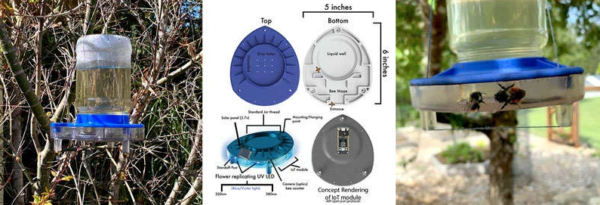
The development phase is in full swing, and researchers at Washington State University are working hard to ensure that this promising product meets all regulatory requirements.
So, if you want to be in on the buzz, and perhaps contribute to saving our bees and pollinators, you can donate to the Washington State university here.
